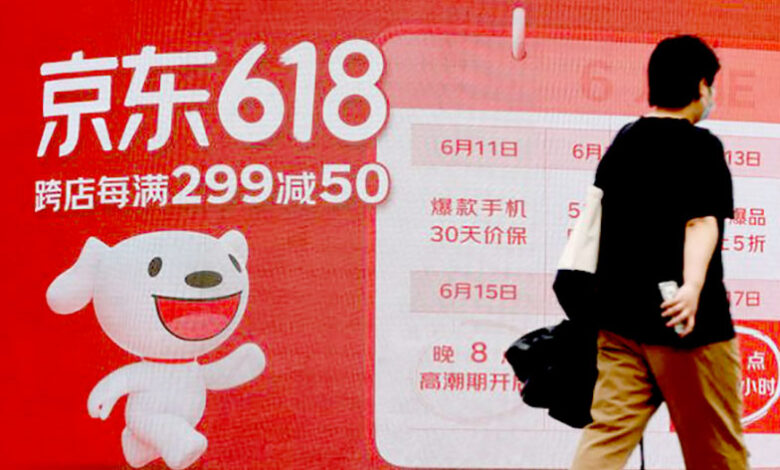China’s 618 shopping event will be evaluated. COVID-affected consumers’ desire to indulge

This weekend, e-commerce platforms in China will report on how the country’s zero-COVID-19 policy and slow economy have affected people’s desire to shop during the mid-year “618” shopping spree.
After November 11’s Singles Day, 618 is China’s second-largest shopping event in terms of sales. Bargain hunters put off purchases until 618 so they can take advantage of discounts on all brands.
Last year, Alibaba (NYSE:BABA) Group Holding Ltd’s Tmall, JD (NASDAQ:JD).com Inc), and Pinduoduo (NASDAQ:PDD) Inc’s combined 618 sales were 578.4 billion yuan ($85.89 billion), an increase of 26.5 percent over the previous year.
In the last three months, however, the world’s second-largest economy has been hampered by government efforts to combat repeated waves of COVID-19. There have been lockdowns in dozens of cities, with different levels of severity. This has cut spending, hurt people’s jobs, and severely messed up supply chains.
Numerous localities loosened restrictions in June and stated that they sought to boost consumption in order to resuscitate the economy by offering coupons, rebates for automobile purchases, and digital yuan payments.
Recognizing that brands have been affected by the pandemic, Alibaba and JD.com are providing merchant support measures, including as a promise to expedite transfers of pre-sale payments to improve merchants’ liquidity.
JD.com stipulates that shoppers receive 50 yuan off for every 299 yuan spent. They are also urging manufacturers to offer their largest-ever discounts in an effort to increase spending. Alibaba has a comparable offering. The vendors pay for these discounts.
Reuters was told by some companies and agencies that they intended to participate in discounting less this year because they or their clients could not afford it.
Last month, Fang Jianhua, founder and chairman of IDG Capital and Alibaba-backed clothing brand Inman Apparel, wrote an article on WeChat about how retailers, especially in Shanghai, were losing sales in the current situation and that he planned to “lie flat” for 618, which is a Chinese phrase for doing nothing.
Instead of discounts, Fang wants to “focus on how to use our products and services to build emotional ties with millions of clients,” he said without going into detail.
Still, stores like Barilla, which makes pasta, and Ryo, which makes shampoo, are selling more “stock up” bundles with a lot of their products.
Even after people were allowed to move around again, many people in cities like Shanghai and Beijing that had been locked down because of a pandemic rushed to buy food and other necessities in case there was another shutdown.
The 618th event was planned by JD.com in 2004 to celebrate its anniversary.
(1 US dollar = 6.7344 Chinese yuan)





